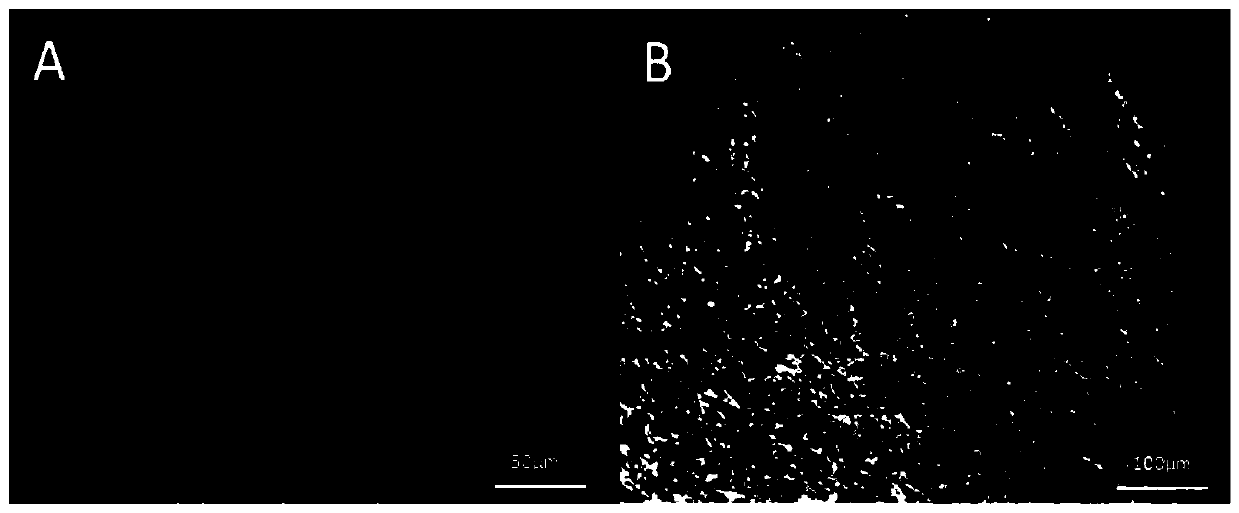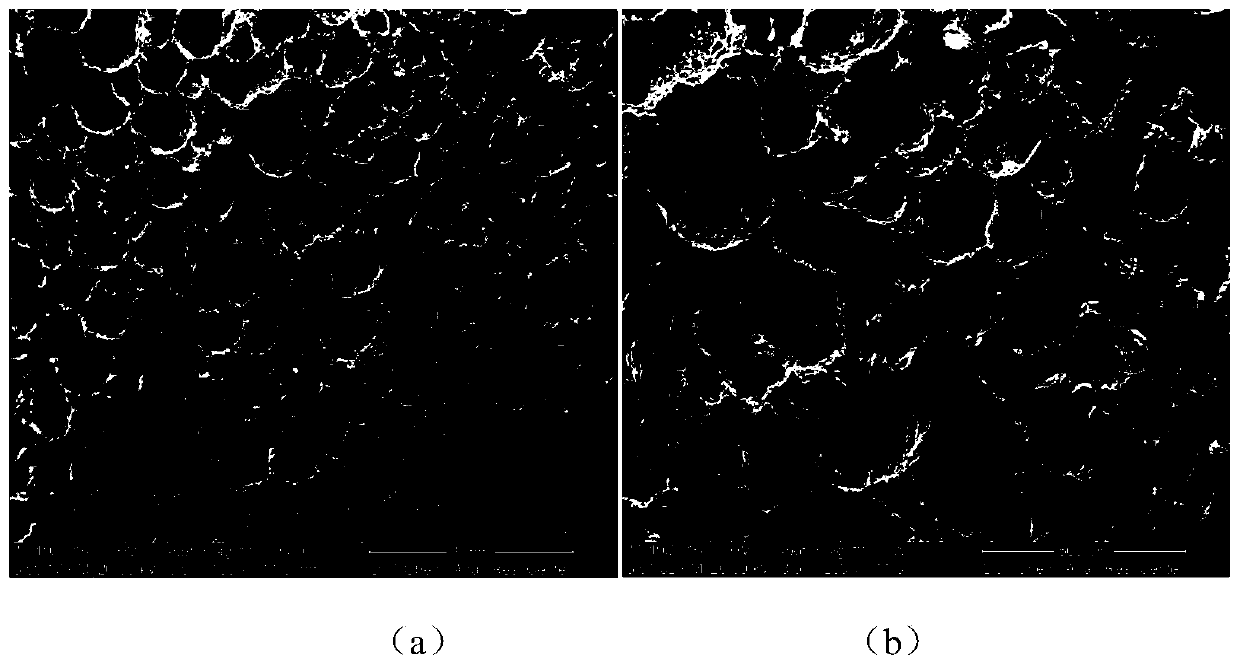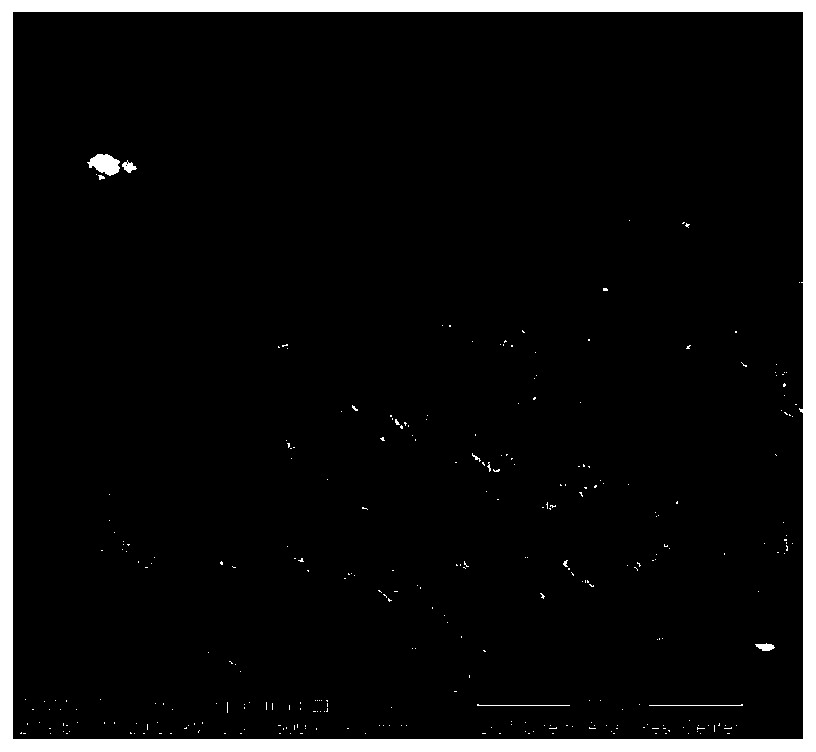A polylactic acid/hydroxyapatite/acellular amnion composite scaffold and its construction method
A hydroxyapatite and composite stent technology, which is used in pharmaceutical formulations, prostheses, drug delivery, etc.
- Summary
- Abstract
- Description
- Claims
- Application Information
AI Technical Summary
Problems solved by technology
Method used
Image
Examples
Embodiment 1
[0033] Example 1 Preparation of decellularized amniotic membrane and biocompatibility testing
[0034] Place the fresh amniotic membrane in a large petri dish, rinse it repeatedly with normal saline until there is no obvious blood on the surface of the fresh amniotic membrane, use surgical forceps and surgical forceps to find the connection between the amniotic membrane and the chorion, and bluntly peel the amniotic membrane from the chorion. Constantly flush with normal saline to wash away the blood clots mixed with the amniotic membrane. Use surgical scissors to cut the cleaned amniotic membrane into a square of 6 cm×6 cm. The amnion rinsed with PBS was submerged in 3mol / L NaCl solution, and placed in an air bath constant temperature shaking incubator to shake for 30min. After taking it out, rinse it with PBS solution, then add 0.25% trypsin / EDTA digestion solution and shake it at 37°C for 4h. After taking it out, rinse it with PBS solution.
[0035] The biocompatibility ...
Embodiment 2
[0036] Example 2 Preparation of polylactic acid / hydroxyapatite composite scaffold (as a comparative example)
[0037] Weigh 6.0g of polylactic acid (PLA) and add it to 100mL of dichloromethane, stir magnetically in a water bath at 50°C until PLA is completely dissolved in dichloromethane until it becomes clear to obtain a PLA dichloromethane solution; The solution was stirred quickly on a magnetic stirrer, and the n-hexane equivalent to dichloromethane was slowly added dropwise with a dropping funnel. If precipitation occurred, the PLA solution needed to be prepared again. Finally, the solution remained clear after adding n-hexane. , to obtain PLA dichloromethane / n-hexane solution; then add 3.0g hydroxyapatite (nHAp) to the PLA dichloromethane / n-hexane solution, stir rapidly on a magnetic stirrer for premixing, and then in an ultrasonic oscillator Mix further until nHAp is uniformly dispersed in the solution to obtain a PLA / nHAp dichloromethane / n-hexane solution; pour the prep...
Embodiment 3
[0038] Example 3 Preparation of Polylactic Acid / Hydroxyapatite / Acellular Amnion Composite Scaffold
[0039] Weighed 6.0 g of polylactic acid PLA and added it to 100 mL of dichloromethane, and stirred it magnetically in a water bath at 50° C. until the PLA was completely dissolved in the dichloromethane until it became clear to obtain a PLA dichloromethane solution. Quickly stir the PLA dichloromethane solution on a magnetic stirrer, and slowly add n-hexane equivalent to dichloromethane dropwise with a dropping funnel. If precipitation occurs, the PLA solution needs to be prepared again. Still keep the clarification as the criterion, obtain the PLA dichloromethane / n-hexane solution; then add 3.0g hydroxyapatite nHAp to the PLA dichloromethane / n-hexane solution, stir rapidly on a magnetic stirrer for premixing, and then Mix further in the shaker until the nHAp is uniformly dispersed in the solution to obtain a methylene chloride / n-hexane solution of PLA / nHAp; add 2.0 g of decell...
PUM
| Property | Measurement | Unit |
|---|---|---|
| diameter | aaaaa | aaaaa |
| contact angle | aaaaa | aaaaa |
| elastic modulus | aaaaa | aaaaa |
Abstract
Description
Claims
Application Information
 Login to View More
Login to View More - R&D
- Intellectual Property
- Life Sciences
- Materials
- Tech Scout
- Unparalleled Data Quality
- Higher Quality Content
- 60% Fewer Hallucinations
Browse by: Latest US Patents, China's latest patents, Technical Efficacy Thesaurus, Application Domain, Technology Topic, Popular Technical Reports.
© 2025 PatSnap. All rights reserved.Legal|Privacy policy|Modern Slavery Act Transparency Statement|Sitemap|About US| Contact US: help@patsnap.com



